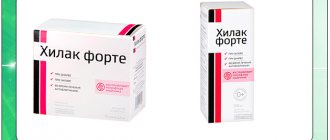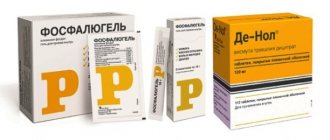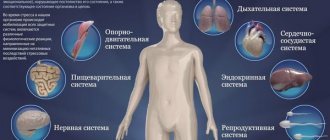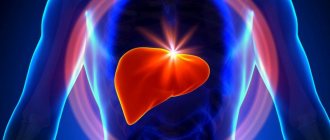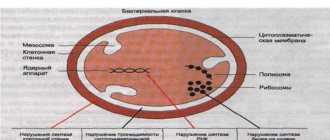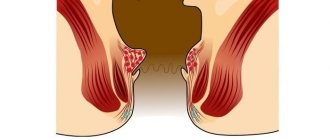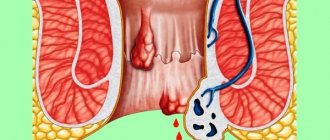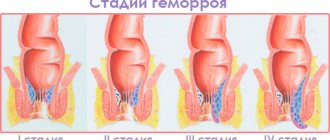Hemorrhoids bring discomfort, unpleasant and sometimes painful sensations into a person’s life. Complex therapy for the disease includes many drugs, one of which is venotonics. The name speaks for itself - medications help normalize the condition of veins and blood vessels, which is important for this pathology. Venotonics for hemorrhoids eliminate the main cause of the disease - poor circulation in the pelvis.
Main characteristics of venotonics
The group of venotonic drugs includes ointments and tablets that help cope with hemorrhoids in the initial stages of its development, and they also help avoid complications such as:
- acute thrombosis of hemorrhoids;
- irreversible changes in the vessels of peri-rectal tissues;
- hemorrhoidal bleeding;
- severe inflammatory and infectious processes in the tissues of the rectum and anorectal area;
- chronic ulcerative lesions of the rectal mucosa.
The main effect of venotonics is aimed at restoring vascular functions: increasing tone, increasing the ability to withstand blood pressure, reducing permeability and eliminating fragility. The restored vessels prevent the flow of blood plasma into the peri-rectal tissues, due to which swelling goes away, inflammation stops, damaged tissues are restored faster due to the normalization of blood flow.
When is it appropriate to use?
Venotonics can be used for different forms of hemorrhoids:
- internal;
- external;
- combined
During periods of exacerbation and chronic hemorrhoids, medications will reduce the size of hemorrhoidal cones and quickly relieve the unpleasant symptoms of the disease.
As for the stage of the disease, medications with a venotonic effect are most effective in the initial stages of the disease.
In addition, it is advisable to take venotonics internally or externally for hemorrhoids occurring against the background of:
- bleeding;
- thrombophlebitis;
- infectious and inflammatory process in the anal zone;
- infectious relief.
Types of venotonics
All medications that have a venotonic effect are divided into several groups depending on their composition:
- venotonics based on bioflavonoids (Phlebodia, Detralex, Venarus, Vasoket) - this includes drugs based on rutin, diosmin, hesperidin. These are the most effective means of systemic action;
- drugs based on synthetic analogs of rutin (Troxevasin, Troxerutin, Ascorutin) are effective in exacerbation of hemorrhoids, in cases of impaired venous circulation, accompanied by pain, severe swelling and inflammation;
- venotonics based on pentoxifylline (Vazonit, Trental) are potent drugs prescribed to increase the tone of the veins and reduce capillary permeability. Treatment with these medications is carried out only on the direct instructions of the attending physician, due to multiple contraindications and side effects;
- venotonics with plant extracts (Ginkor Fort, Aescusan) - the basis of the preparations are biologically active substances: horse chestnut, tea tree, sage, mint. For chronic circulatory disorders in hemorrhoidal veins, they are best used in combination with basic drug treatment.
Is it possible to get rid of hemorrhoids forever? Read more here.
Which veinotonic is best to use for hemorrhoids?
The use of venotonics for hemorrhoids allows you to slow down and stop the progression of the disease, and in chronic forms, significantly reduce the time between relapses. Taking venotonic drugs for hemorrhoids should occur in accordance with a specific regimen recommended by the attending physician. Treatment of hemorrhoidal disease with venotonics is long-term. Depending on the severity of the disease, it can last from 2 to 6 months. In the future, the doctor may recommend a second course of treatment.
Below are the most effective venotonics used in the treatment of hemorrhoids.
Detralex (tablets)
Venotonic, the main active ingredients are hesperidin and diosmin. The main effect of the drug is aimed at completely restoring vascular functions. With regular use, excessive permeability of veins and capillaries completely disappears, the vessels narrow, acquire elasticity and tone. The gradual restoration of blood vessels helps eliminate congestion in the veins and eliminate inflammation in hemorrhoids.
Phlebodia 600 (tablets)
The main active ingredient of the drug is diosmin. In case of hemorrhoids, it quickly normalizes blood flow in the peri-rectal tissues by restoring blood vessels and strengthening them. Eliminates blood stagnation in hemorrhoidal veins, reduces the permeability of vascular walls and, as a result, relieves swelling. The effect of using venotonic directly depends on the duration and regularity of its use.
Venarus (tablets)
Venotonic, which has a strong effect on blood vessels. Normalizes blood microcirculation in the body, reduces the extensibility of vascular walls by restoring their functions. For hemorrhoids, it is effective in preventing thrombosis of hemorrhoids, congestive processes and the development of the inflammatory process.
Troxevasin (gel, tablets)
Venotonic with the active substance – troxerutin. In case of chronic dysfunction of the veins, it quickly and effectively restores them. For hemorrhoids, it helps reduce swelling, relieve pain, reduce bleeding and the frequency of relapses. Helps restore tone and reduce the permeability of vascular walls.
Aescusan (drops, tablets, ointment)
Venotonic based on thiamine and escin (horse chestnut extract). For hemorrhoids, it helps eliminate itching and swelling. It has a powerful venotonic effect: eliminates fragility, excessive permeability of vascular walls, eliminates stagnation of venous blood in hemorrhoidal veins.
Ascorutin (tablets)
Venotonic based on rutin. For hemorrhoids, it is effective as a drug that allows you to quickly eliminate swelling, itching and reduce inflammation by normalizing blood flow in the tissues of the rectum and anorectal area.
Ginkor Fort (tablets)
Venotonic with ginkgo biloba extract.
Has a strong tonic and strengthening effect. Increases the elasticity and strength of blood vessels, quickly eliminates congestion in hemorrhoidal veins. Venotonic is recommended for use during exacerbation and chronic forms of hemorrhoids to quickly relieve symptoms and prevent relapses. Most venotonics are available in tablets. Unlike ointments, they have a systemic effect on the body (the active substances enter the general bloodstream). Therefore, for greater effectiveness of treatment of hemorrhoids with venotonics, they should be taken only after consultation with a doctor. Almost all medications have their contraindications and side effects, which must be taken into account when using a particular drug.
Price
You will determine for yourself during the course of treatment which is the best venotonic for hemorrhoids. The detailed instructions contained in each package of the drug and the attending physician will help you decide on your choice.
| Drug name | Where can I buy | Price in rubles, average |
| Vasocket | Pharmacies, online stores, various sites from direct suppliers, specialized retail outlets | 800 |
| Venarus | 550 | |
| Doppelhertz | 320 | |
| Detralex | 750 | |
| Heparin ointment | 50 | |
| Troxevasin | 180 | |
| Relief | Candles 360, ointment 357 | |
| Nigepan | 244 | |
| Proctosedyl | Ointment 324, suppositories 406 | |
| Aurobin | 297 | |
| Natalsid | 357 | |
| Levomekol | 118 | |
| Indovazin | 250 |
Venotonics help fight hemorrhoids faster and more effectively; with their help, all symptoms are removed much faster, wounds heal and the veins of the anal colon return to tone.
Treatment of hemorrhoids with venotonics
Venotonics for hemorrhoids are prescribed by specialists for the speedy regeneration of vascular walls, increasing their resistance to negative influence factors. Venotonics are effective in the treatment of hemorrhoidal diseases. Thanks to venotonics, vascular tone is restored, blood flow improves, and the symptoms of hemorrhoids are eliminated.
Venotonics for hemorrhoids and which one is best to use is decided by a specialized specialist in each case individually. Venotonic drugs are prescribed to improve blood circulation in the brain, increase vascular tone in varicose veins, and alleviate the symptoms of venous diseases. For preventive purposes, venotonics are used to eliminate blood stagnation in the pelvis.
What are venotonics and how do they work?
Venous walls need to be strengthened not only for those who are already living with a diagnosis of hemorrhoids, but also for people who, due to heredity or due to the characteristics of their professional activities, are prone to this disease. Venotonic drugs for hemorrhoids are included in the standard treatment regimen.
How venotonics work:
- They normalize the condition of the vascular wall, return it to tone through nervous regulation;
- Restore the framework of the vascular wall;
- Reduce the intercellular pores of the inner choroid, thereby blocking the exit of the liquid component of the blood beyond the boundaries of the vascular bed;
- Due to these actions, the swelling, which compresses the nerve endings, goes away, the pain, burning, itching goes away;
- The condition of red blood cells is normalized;
- Blood clotting decreases;
- The likelihood of thrombosis is reduced.
Venotonics for hemorrhoids are produced in large quantities. The doctor decides which one is more effective and gentle. Even a seemingly harmless herbal medicine has contraindications, so you should go to a specialist for a prescription. If a friend or relative advised you of a certain drug, this does not mean that you should take it - the adviser does not know all the features of your health, and cannot take into account the risk of contraindications.
Factors causing hemorrhoids
Varicose veins (hemorrhoids) are treated after diagnosis. Hemorrhoidal disease should be treated taking into account the stage of the pathology, severity, and characteristics of the patient’s body.
Why does inflammation of hemorrhoidal veins occur? Causes:
Physical overexertion
- sedentary work;
- frequent indulgence in spicy dishes;
- sedentary life;
- addiction to alcohol, smoking;
- genetic predisposition;
- difficult childbirth, pregnancy;
- unbalanced diet;
- emotional instability;
- irregular bowel movements (constipation);
- hard physical labor.
Causes of the disease
Causes of hemorrhoids:
- sedentary lifestyle;
- sedentary work;
- heredity;
- unhealthy diet, predominance of heavy foods, fast foods, which form dense feces;
- frequent constipation, straining during which can lead to the confluence of vein nodes;
- heavy frequent physical activity;
- frequent stress, emotional tension;
- pregnancy, childbirth - in women;
- alcohol abuse, excessive smoking;
- addiction to spicy food - in men.
Symptoms of the disease
Among the main symptoms of hemorrhoids are:
Burning in the anus
- severe pain when touching hemorrhoids;
- lump-like protrusion around the anal canal;
- increase in bumps during bowel movements;
- traces of blood in the stool during bowel movements;
- discomfort with itching and burning in the anus;
- severe pain when straining, during coughing, sneezing (with hemorrhoidal thrombosis).
With internal hemorrhoids, patients experience inflammation of lumps that are practically invisible (submucosal). At the beginning of the disease, blood discharge is sometimes noticeable after voiding on paper. Internal hemorrhoids are characterized by pain during/after bowel movements, a feeling of incomplete cleansing of the intestines, discomfort, and the release of voluminous lumps into the lumen of the anal canal.
Medicines for hemorrhoids
After examination and medical history, if hemorrhoids are detected, the doctor prescribes effective drug therapy. The treatment regimen consists of the use of internal and local dosage forms.
Specialist doctor
- Phlebotropic group (Ginkor fort, Diosmin).
- Local preparations (combined, natural).
- Laxatives (to normalize stool).
- Painkillers.
Venotonics for hemorrhoids are prescribed to improve microcirculation in the brain, increase tone in dilated veins, and relieve symptoms due to venous disease. Venotonic drugs are prescribed for hemorrhoids and for preventive purposes when removing vascular congestion in the pelvis.
Contraindications
Venotonics, in any dosage form, like all other drugs, have a number of contraindications:
- diseases of the gastrointestinal tract, in acute form, are especially contraindicated;
- acute gastritis;
- difficult pregnancy, with the threat of miscarriage or other complications, fetal pathologies;
- presence of an allergy to any component of the venotonic;
- renal and liver failure;
- hypersensitivity to the components of the drug;
- incompatibility of the drug with other medications used, refusal of which is not possible for various reasons.
Spectrum of action of venotonics
Venotonics for hemorrhoids are the only effective remedy that eliminates itchy symptoms a few minutes after taking the pills.
Venotonics have a number of positive effects:
- prevent the occurrence of thrombosis;
- strengthen vascular walls, reduce permeability, swelling, inflammation;
- improve blood circulation;
- stabilize venous tone;
- reduce leukocyte aggression.
Components in venotonics
Venotonics for hemorrhoids in tablet form are considered the most popular drugs.
They owe their popularity to their natural composition of the following components:
- Japanese Sophora;
- horse chestnut;
- red grape extracts.
Chemical components are added to the plant components, which in combination contribute to a powerful therapeutic effect on the affected capillaries and veins.
Medicines with bioflavonoids act systemically on the body (Venarus, Vasoket, Detrolex, Phlebodia).
Routine medications effectively relieve swelling in the inflamed area. Drugs such as Ascorutin and Troxevasin are available in capsules and ointments, which expands the range of effects of the drug (topically and orally).
Venotonics with pentoxifylline (Trental, Vazonit) help increase venous tone, reduce vascular permeability, and restore nutrition to intestinal tissues. In addition to the positive results, these drugs have many side effects, so their use is strictly permitted after a doctor’s prescription.
To treat varicose veins, biologically active compounds (dietary supplements) with tea tree oil, mint extract, and horse chestnut are used. Biological products are available in the form of tablets, capsules, solutions, drops, ointments, creams, and suppositories. Basically, biological medications are prescribed as additional means to effective therapy.
Venotonic ointments
Ointments and balms are much more often prescribed for hemorrhoids. They are easier to use, you don’t have to worry about overdose, and they have a pharmacological effect much faster than venotonics in tablet form.
Venotonic ointments have a local effect, affect the veins and eliminate unpleasant symptoms:
- “Posterized.”
- "Bezornil."
- "Aesculus."
- "Troxevasin".
- "Procto-Glyvenol."
- "Heparin ointment."
- "Levomekol".
- "Aurobin."
- "Relief".
- "Ultraproct".
- "Proctosedyl."
- "Proctosan."
- "Hepatrombin."
- "Doloproct."
- "Heparoid Zentiva".
List of venotonics
The selection of a venotonic for the treatment of hemorrhoids is carried out by the attending physician, taking into account the severity, stage of the disease, the size of the cones, their number, allergies, and the individuality of the body.
The best venotonics for inflamed hemorrhoids, phlebotropic tablets:
Venotonic suppositories for inflamed hemorrhoids are recommended as an additional medicine in case of lumps, itching, burning, frequent constipation, pain and minor blood loss.
Rectal suppositories
- Nigepan is a preventive suppository to relieve and alleviate primary symptoms.
- Relief - prescribed to patients with blood loss. Suppositories have excellent regenerating properties, promote easy bowel movements, reduce inflammation, and eliminate infection.
- Natalsid is a hemostatic suppository with anti-inflammatory and restorative effectiveness.
- Aurobin is a combined (hormonal) local drug for relieving pain from hemorrhoids.
- Proctosedyl - suppositories for itching, swelling, inflammation, restore tone in the veins.
Before starting treatment therapy, diagnosis and medical consultation are necessary. Spontaneous, uncontrolled use of drugs can not only be a useless treatment, but also worsen a person’s health.
Venotonic drugs for hemorrhoids: main properties
Venotonic drugs today are considered perhaps the only remedy that really eliminates itching in the anus within 10 minutes after taking the medicine. In addition to this effect, venotonics have a number of other properties:
- Eliminates the possibility of blood clots.
- Prevents the development of inflammatory and infectious processes in the body.
- Makes the walls of blood vessels less permeable, resulting in less swelling in the area of inflammation. In addition, small veins under the influence of venotonics become more fragile and tender.
- Improves blood flow in small vessels, thereby improving nutrition of cells in tissues.
- Stabilizes the tone of the veins and normalizes the pressure in them. It also improves the functioning of valves inside the vessels, thereby restoring the normal process of blood outflow from the pelvic veins.
- Reduces the aggressive behavior of leukocytes, thereby reducing the inflammatory process.
Types of venotonics
Venotonic tablets for hemorrhoids are very popular. This popularity is largely due to the natural composition of the drugs, which mainly include the following components:
- Ginkgo biloba;
- Horse chestnut;
- Red grape extract;
- Japanese Sophora concentrate.
Active chemicals are added to these plant components. In combination, all these substances give a powerful effect, due to which the patient soon feels noticeable relief.
All venotonic drugs can be divided into the following types:
- Preparations based on bioflavonoids. Such drugs are intended for oral administration and have a systemic effect on the body. This group includes the medications Venarus, Phlebodia, Detralex, Vasoket.
- Preparations based on the substance rutin. This group contains capsules for oral administration, Troxevasin and Ascorutin. There are also ointments for topical use, Troxevasin and Troxerutin. These products help to effectively relieve swelling at the site of inflammation.
- There are venotonics based on the substance pentoxifylline. This group includes Trental and Vazonit. The drugs increase the tone of the veins, make the walls of blood vessels less permeable, and improve the nutrition of intestinal tissues. However, it is worth noting that the active component contained in the medicine causes many side effects and has many contraindications, so it must be taken strictly as directed by the doctor.
- Dietary supplements based on extracts of mint, tea tree and horse chestnut. This category contains creams and tablets.
Venotonic drugs for hemorrhoids: main properties
Venotonic drugs today are considered perhaps the only remedy that really eliminates itching in the anus within 10 minutes after taking the medicine. In addition to this effect, venotonics have a number of other properties:
- Eliminates the possibility of blood clots.
- Prevents the development of inflammatory and infectious processes in the body.
- Makes the walls of blood vessels less permeable, resulting in less swelling in the area of inflammation. In addition, small veins under the influence of venotonics become more fragile and tender.
- Improves blood flow in small vessels, thereby improving nutrition of cells in tissues.
- Stabilizes the tone of the veins and normalizes the pressure in them. It also improves the functioning of valves inside the vessels, thereby restoring the normal process of blood outflow from the pelvic veins.
- Reduces the aggressive behavior of leukocytes, thereby reducing the inflammatory process.
